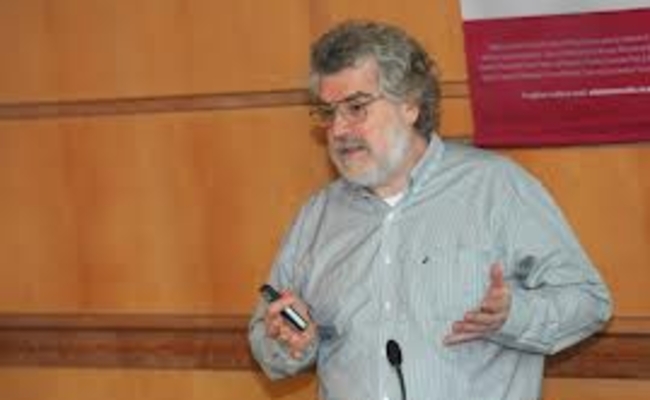Seminario académico: ¿Por qué se ha estancado el crecimiento de la productividad en América Latina desde las reformas neoliberales?
Fecha de inicio: 25 de Septiembre de 2013, 13:00 hrs.
Fecha de término: 25 de Septiembre de 2013, 14:00 hrs.
El Seminario se realizará el miércoles 25 de septiembre de 13:00 a 14:00 hrs, en la Sala P-301, Tercer Piso del edificio Placa de la Facultad de Economía y Negocios de la Universidad de Chile, ubicada en Diagonal Paraguay 257.
El Departamento de Economía de la Universidad de Chile tiene el agrado de invitar a usted al siguiente seminario académico:
Título: “¿Por qué se ha estancado el crecimiento de la productividad en América Latina desde las reformas neoliberales?” (Documento adjunto)
Autor: Gabriel Palma (Faculty of Economics, Cambridge University)
Presenta: Gabriel Palma (Faculty of Economics, Cambridge University)
Abstract: Latin America’s economic performance since the beginning of neo-liberal reforms has been poor; this not only contrasts with its own performance pre-1980, but also with what has happened in Asia since 1980. I shall argue that the weakness of the region’s new paradigm is rooted as much in its intrinsic flaws as in the particular way it has been implemented. Latin America’s economic reforms were undertaken primarily as a result of the perceived economic weaknesses of the region — i.e., there was an attitude of ‘throwing in the towel’ vis-à-vis the previous state-led import substituting industrialisation strategy, because most politicians and economists interpreted the 1982 debt crisis as conclusive evidence that it had led the region into a cul-de-sac. As Hirschman has argued, policymaking has a strong component of ‘path-dependency’; as a result, people often stick with policies after they have achieved their aims, and those policies have become counterproductive. This leads to such frustration and disappointment with existing policies and institutions that is not uncommon to experience a ‘rebound effect’. An extreme example of this phenomenon is post-1982 Latin America, where the core of the discourse of the economic reforms that followed ended up simply emphasising the need to reverse as many aspects of the previous development (and political) strategies as possible. This helps to explain the peculiar set of priorities, the rigidity and the messianic attitude with which the reforms were implemented in Latin America, as well as their poor outcome. Something very different happened in Asia, where economic reforms were often intended (rightly or wrongly) as a more targeted and pragmatic mechanism to overcome specific economic and financial constraints. Instead of implementing reforms as a mechanism to reverse existing industrialisation strategies, in Asia they were put into practice in order to continue and strengthen ambitious processes of industrialisation.
El Seminario se realizará el miércoles 25 de septiembre de 13:00 a 14:00 hrs, en la Sala P-301Tercer Piso del edificio Placa de la Facultad de Economía y Negocios de la Universidad de Chile, ubicada en Diagonal Paraguay 257.
| Archivos | |
|---|---|
| Why has productivity growth stagnated in most Latin American countries since the neo-liberal reforms? | Descargar Archivo |
